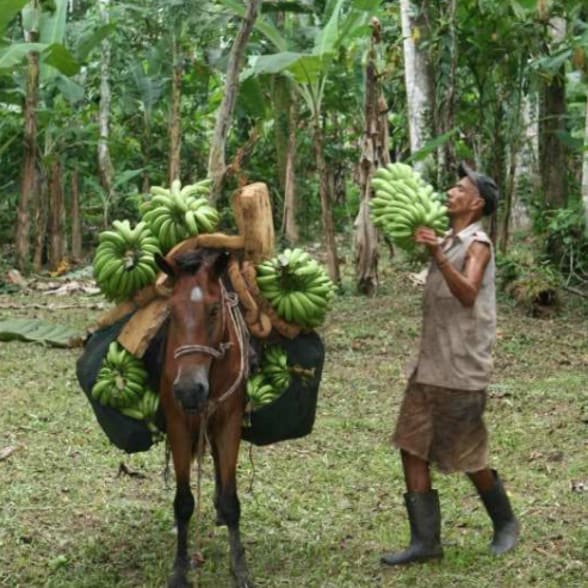
Collective commitment
The Cacao Forest program
Since 2015, we have been a founding member of the Cacao Forest project, a pioneering multi-sector initiative that aims to build a sustainable cocoa industry through agroforestry.
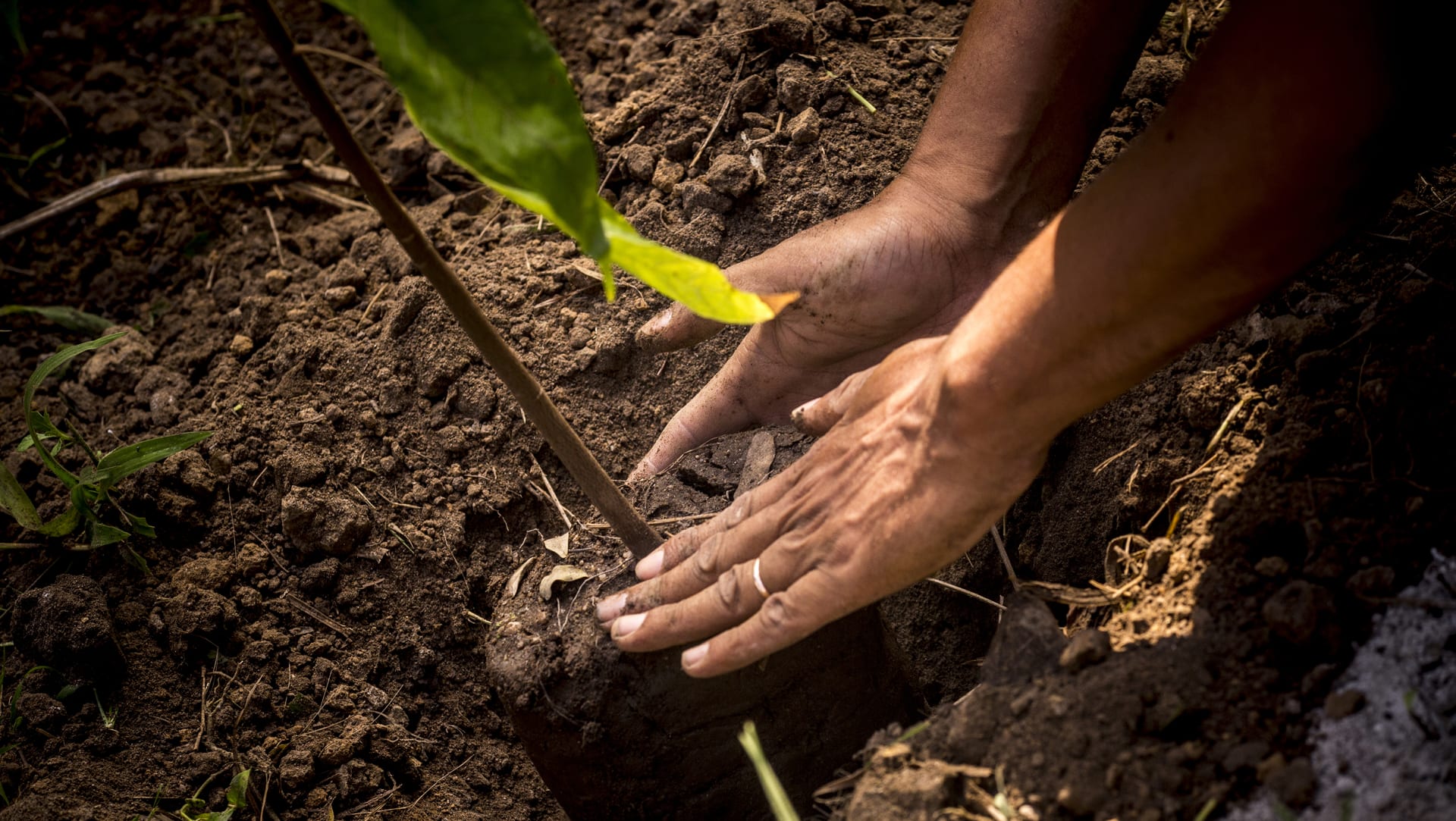
According to the FAO, agroecology is the use of natural resources and mechanisms for the purpose of agricultural production. It combines ecological, economic, and social dimensions and aims to better leverage the interactions between plants, animals, humans, and the environment.
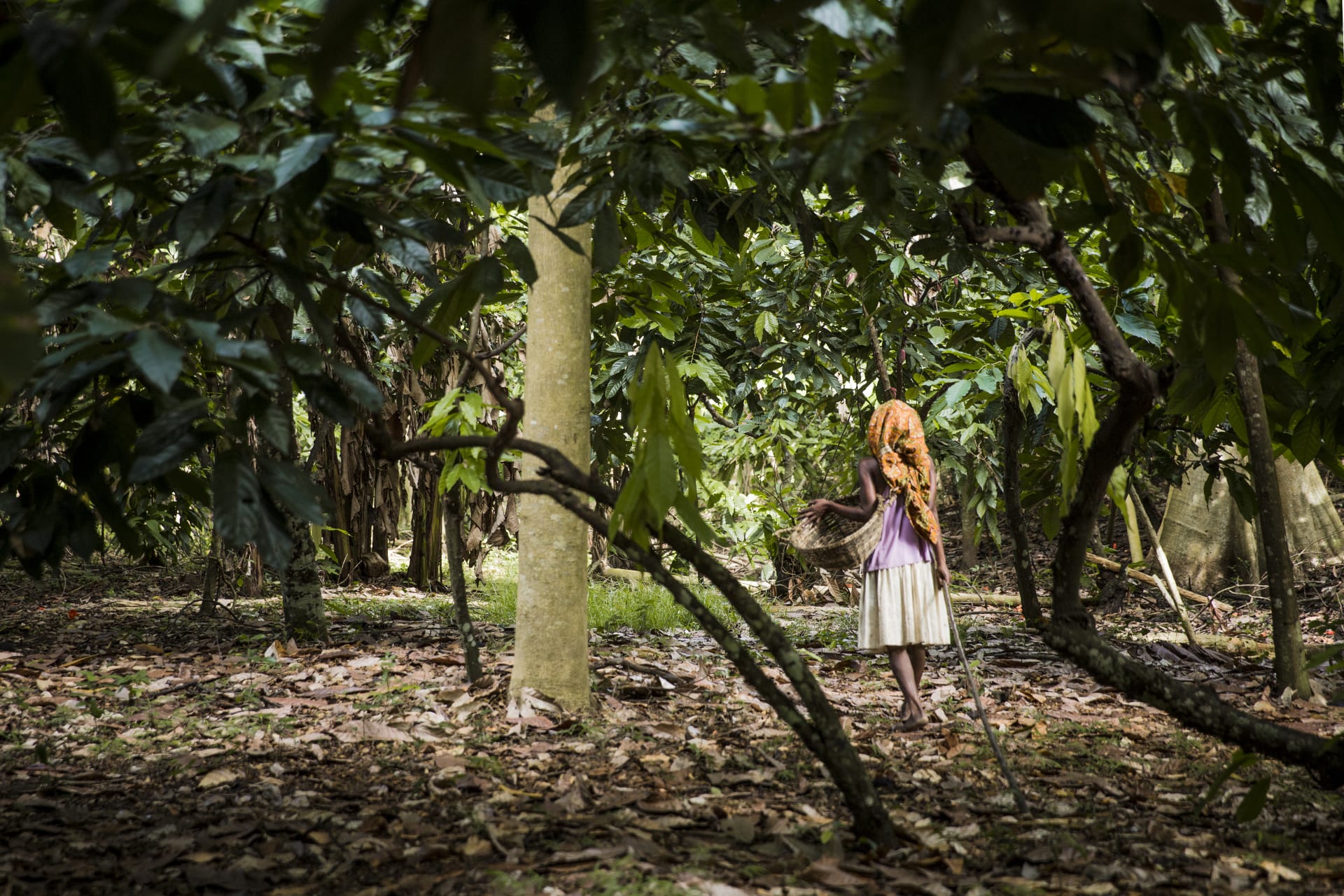
Agroecology’s fundamental principles include:
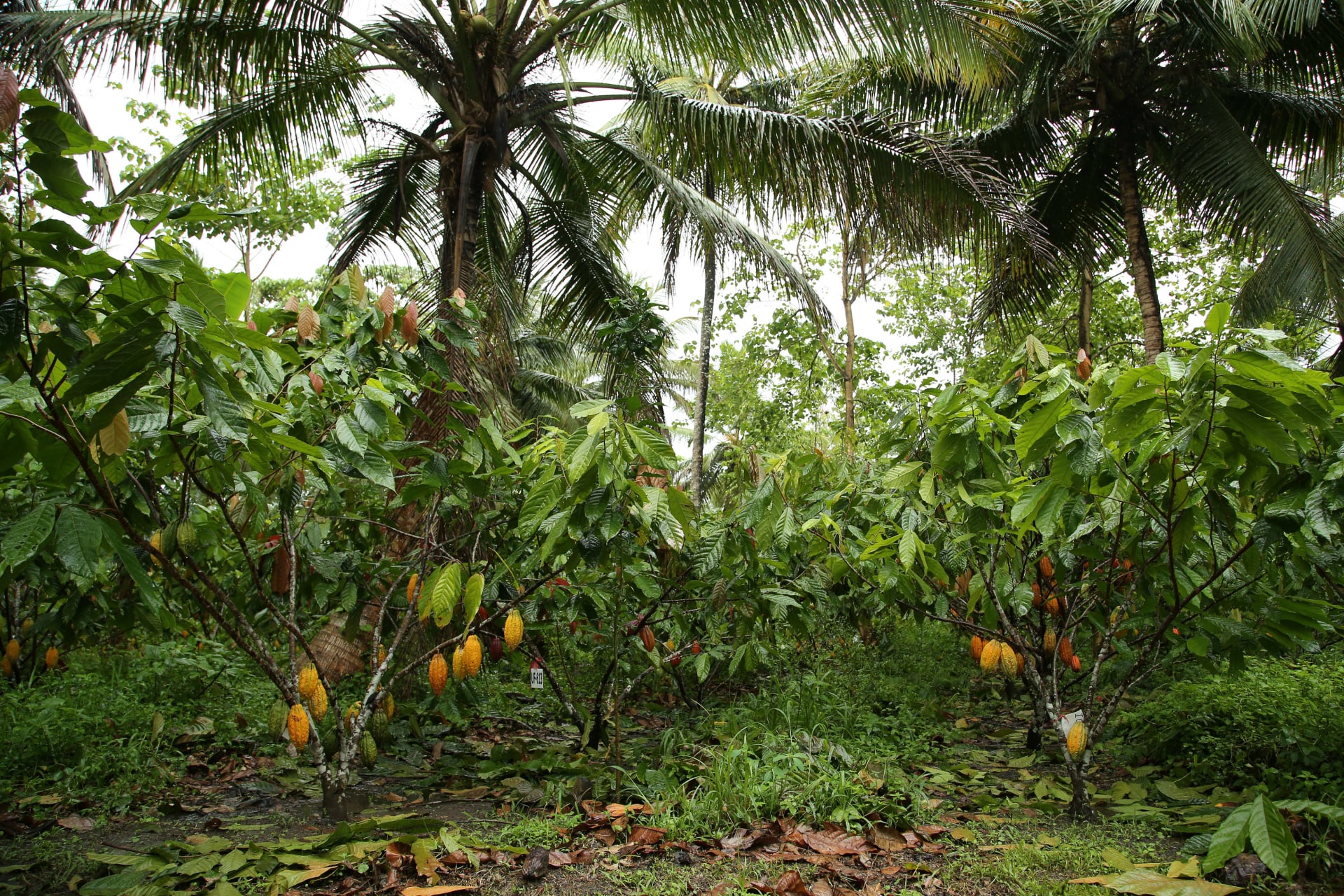
At Valrhona, we know that agroecology is a priority if we are to sustain cocoa-growing over the long term, so we have a responsibility to help our producers to adopt this practice.

Since 2015, we have been a founding member of the Cacao Forest project, a pioneering multi-sector initiative that aims to build a sustainable cocoa industry through agroforestry.
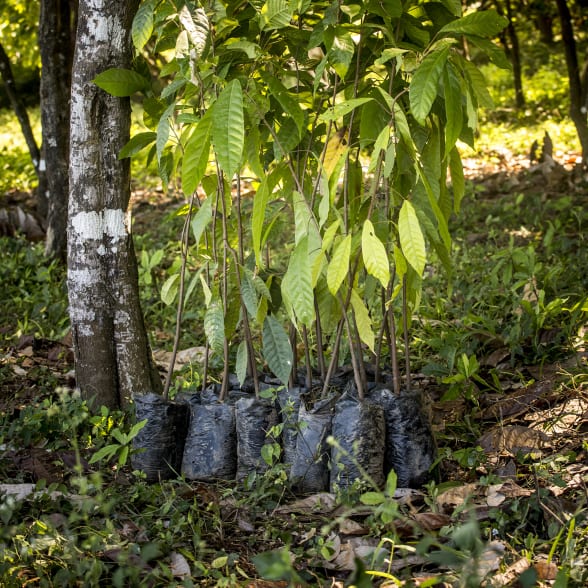
The Cocoa & Forests Initiative defines agroforestry as: "A land-use system in which cacao trees are planted with other tree species within the same farming area. These species may vary over time as the cacao trees grow taller and other tree species are harvested. Agroforestry systems involve both ecological and economic interactions between different species."
Between 2015 and 2022, 4 agroforestry models were tested in the Dominican Republic on 36 plots. Their development is based on applied research supported by the expertise of various stakeholders in the sector (including CIRAD and Earthworm).
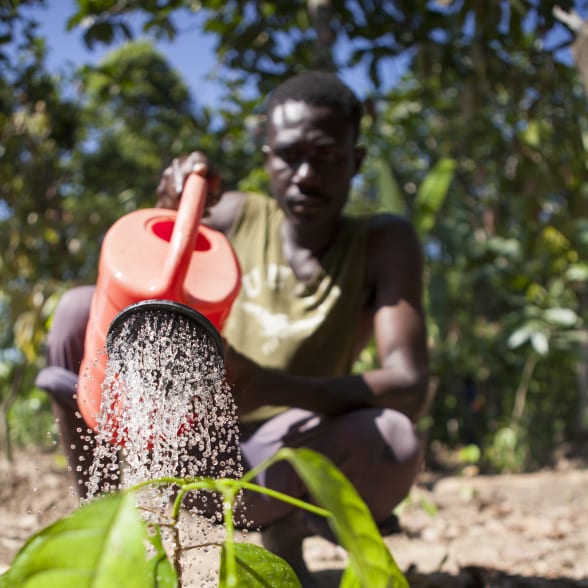
The results demonstrate significant benefits for the 1900 producers:
Since 2024, the most effective models have been identified. The creation of knowledge on agroforestry dynamics in the local context has also led to the creation of a master's program on the subject in the country's public universities. The Cacao Forest program is launched in Ivory Coast in 2025.
At Valrhona, the selection of our suppliers based on their commitments to agroecology is a key criterion. We have always been committed to collaborating with partners who have an exemplary approach, respectful of the land and people, as is the case with our historical partners such as Millot, M. Libânio, Satocao, and Hummingbird Citrus LTD.
We are committed to deploying agroecological practices with all our partners to ensure the sustainability of crops and the well-being of communities. This approach is region-specific: it is always adapted to the field realities and the maturity of production methods. Thus, we affirm our determination to promote sustainable and responsible agriculture for the benefit of all.
Today, Valrhona funds training programs on good agricultural practices and the deployment of agroecological practices in Peru, Togo, Ghana, Ecuador, Haiti, Venezuela, Madagascar, Ivory Coast, and Indonesia.
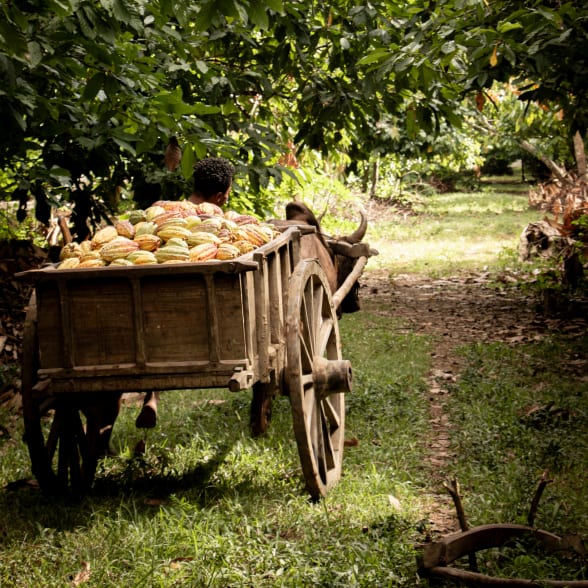
Agroforestry being a practice of agroecology, we wish to develop our expertise on this subject with our partner suppliers. Since 2018, 4 major projects with our partners have been implemented:
Given the impacts of these projects, we are reassured in our approach and wish to continue our commitment to the development of agroforestry in the cocoa sector.

Valrhona is committed to reducing the use of pesticides in cocoa production. The reduction of chemical use and their well-reasoned use is an integral part of agroecological practices. We therefore commit, in collaboration with our partners, to support their initiatives to prevent the use of highly toxic pesticides on cocoa plantations, which can have harmful effects on the environment, the health of producers, and the quality of cocoa.
The well-reasoned management of chemicals and pesticides is also a requirement of fair trade standards. By taking a position as a fair trade partner, we commit to respecting these criteria and supporting the compliance of our partners with these practices.
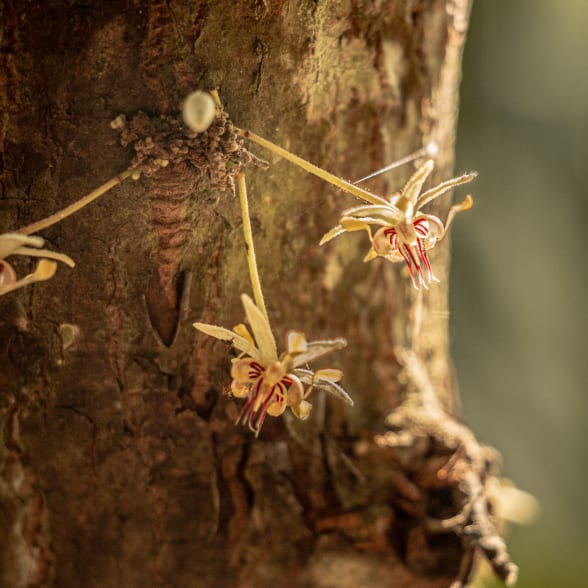
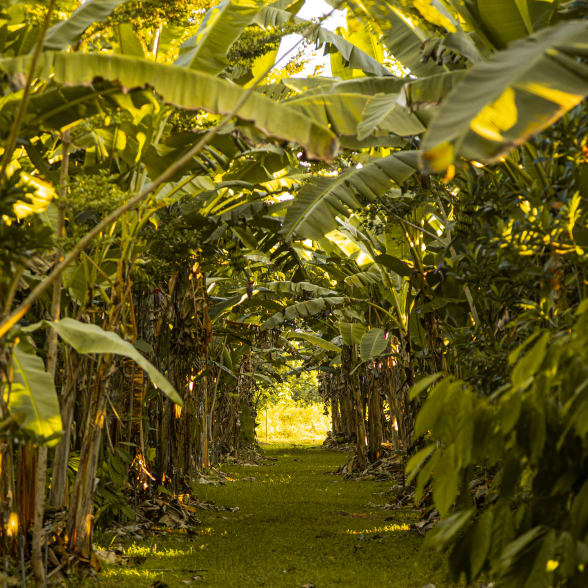
In 2024, Valrhona funds:

Our control plans on our raw materials and chocolates are very demanding and ensure compliance with European regulations.
We carry out controls both in production and on finished products. These controls are release controls, which means that if a batch is not compliant, it is not marketed. We have had no product recalls for 5 years.
You are using an outdated browser. Please upgrade your browser to improve your experience and security.
×